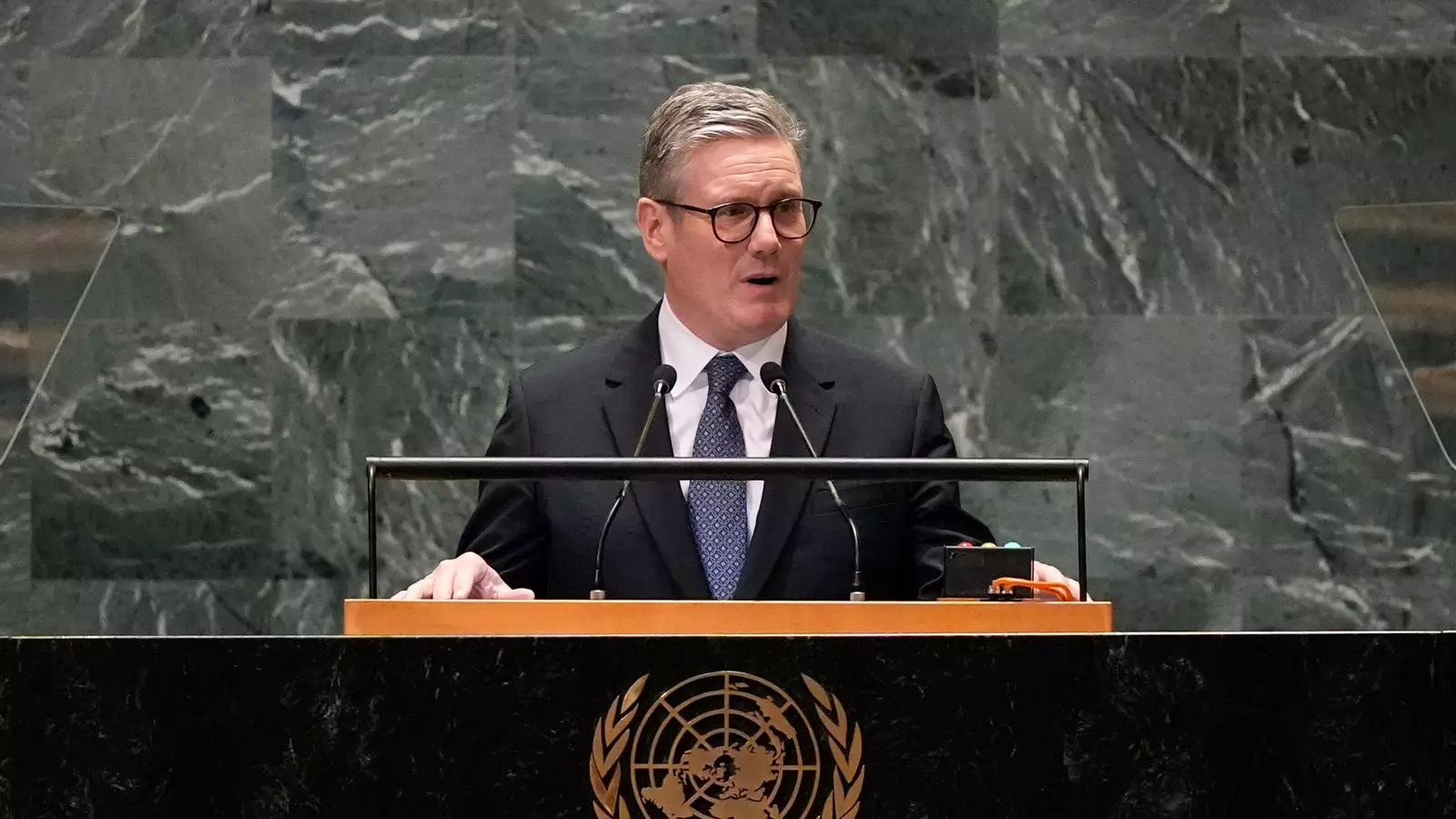In a recent address delivered at the United Nations General Assembly, UK Prime Minister Sir Keir Starmer emphasized the urgent need for a ceasefire between Israel and Hezbollah. His statement was not merely a diplomatic formality; it was a heartfelt appeal for de-escalation at a time when tensions in the region seem to be spiraling out of control. With violence rampant and loss of life on both sides increasing, Starmer underscored the idea that “escalation serves no one,” urging both parties to step back from the precipice of a broader conflict.
This call for peace comes at a crucial juncture when chances for diplomatic resolution appear perilously slim. Israeli Prime Minister Benjamin Netanyahu’s declaration that his forces would continue their operations with unwavering intensity contradicts Sir Keir’s plea for an immediate halt to hostilities. In an atmosphere fraught with mistrust and hostility, the gulf between the two leaders’ positions seems to widen further, calling into question the possibility of a harmonious path forward.
During his address, Starmer articulated the necessity for the international community to come together to foster a peaceful resolution. He stated, “We need to see an immediate ceasefire to provide space for a diplomatic settlement.” This sentiment reflects a growing recognition that unilateral actions can only delay the onset of a sustainable peace. His emphasis on collaboration reinvigorates the notion that peace is most attainable through shared responsibility, particularly among the global powers that wield influence over the state actors embroiled in conflict.
The Prime Minister’s remarks also hinted at addressing broader geopolitical tensions, notably criticizing Russia for its military aggression in Ukraine. By doing so, he not only contextualized the Israel-Hezbollah issue within a larger framework of global injustices but also reaffirmed Britain’s staunch dedication to upholding international law. Starmer’s calls for “new energy and creativity” in conflict resolution signal a burgeoning awareness of the limitations of conventional diplomacy and fear-based strategies.
Apart from the urgent calls for international peace, Sir Keir Starmer also made significant domestic pledges, notably regarding climate change investment. He announced that substantial funds from pension and insurance portfolios would be allocated toward initiatives aimed at combating climate change, describing these efforts as essential for “fighting climate change” and “boosting development.” This announcement stands as an ambitious approach toward harnessing private investment for public good, illustrating a multifaceted vision that includes economic sustainability alongside global diplomacy.
Starmer’s novel strategy indicates a desire to invigorate the UK’s long-term commitment to environmental responsibility, aligning national policies with the pressing global imperative of climate change. He pointed to the need for innovative, accelerated solutions, arguing that traditional approaches may no longer suffice in a rapidly evolving world where climate crises are an immediate reality.
The backdrop of Starmer’s speech at the UN is laden with political intricacies both at home and abroad. With a significant meeting scheduled with Donald Trump ahead of the upcoming US elections, the dynamics of UK-US relations remain a focal point of interest. While opportunities for dialogue with Democratic leaders such as Kamala Harris appear unlikely during this visit, such interactions underscore the challenges and strategic maneuvers that define modern-day politics, particularly in an era where transatlantic relationships are in flux.
Sir Keir Starmer’s address encapsulates a crucial moment in contemporary politics where calls for peace coincide with urgent domestic challenges. The Prime Minister’s comprehensive approach reflects a growing consciousness about the interconnectedness of global and national issues—centered on diplomacy, investment in sustainability, and a collective will to pursue a more peaceful world. The next steps taken by both Israel and Hezbollah, alongside the international community, will likely shape not only the Middle East but also set a precedent for global diplomatic efforts in addressing complex conflicts.


Leave a Reply